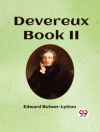In Charles Dickens’ ‘The Haunted Man and the Ghost’s Bargain’, the reader is transported to a dark and eerie tale of a man who makes a deal with a ghost to rid himself of his memories and sorrows. This lesser-known Christmas story by Dickens showcases his signature literary style of vivid characterizations and social commentary, set in a supernatural context. The thematic elements of redemption, forgiveness, and the consequences of bargaining with the supernatural are prominent throughout the narrative, making it a compelling read for fans of Victorian Gothic fiction. Dickens’ use of irony and symbolism adds depth to the story, enhancing the reader’s engagement with the plot. The atmospheric descriptions create a sense of mystery and suspense, keeping the reader on the edge of their seat until the very end.
เกี่ยวกับผู้แต่ง
Charles Dickens (1812–1870) stands as a titan of English literature, renowned for his keen observation of character and society, and for his evocative depictions of Victorian life. Dickens’s proficiency in the use of character, dialogue, and ironic humour establishes him as a preeminent storyteller of his time. Born in Portsmouth, England, Dickens rose from humble beginnings to become one of the most famous writers of the 19th century. His experiences with social injustice and poverty during his early life profoundly influenced his writing and themes. His novel ‘The Haunted Man and the Ghost’s Bargain’, a Christmas novella first published in 1848, showcases his unique blend of social commentary and supernatural themes. It is the fifth and last of his Christmas books and deals with themes of forgiveness and the harmful effects of holding onto the past. Dickens’s ability to blend such themes with memorable characters has allowed his work to endure. He was a master of serialized novels, which allowed him to reach a wide audience in both England and America. In works such as ‘Oliver Twist’, ‘David Copperfield’, and ‘Great Expectations’, Dickens illuminates the social ills of his time, while creating some of the most enduring characters and stories in literary history. His contributions to literature have been celebrated for their imaginative power, comedy, narrative genius, and deep empathy for the human condition.












